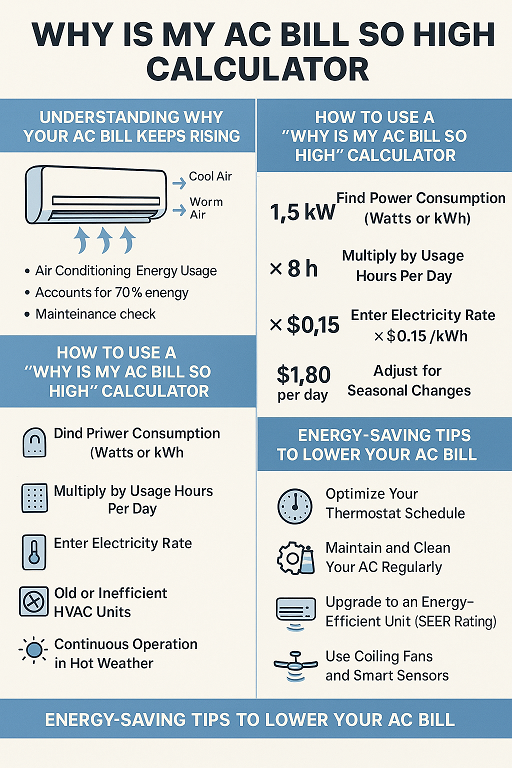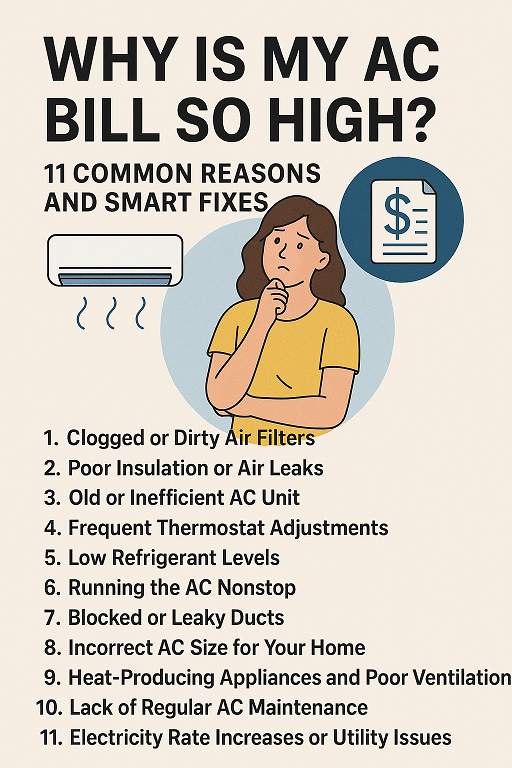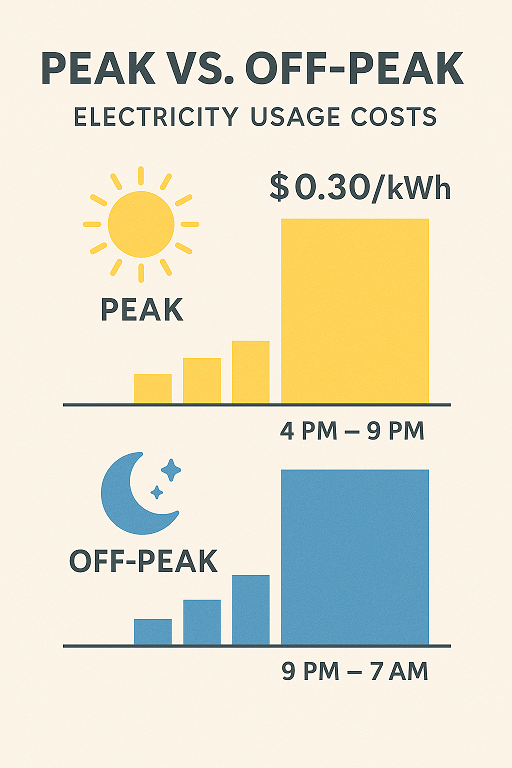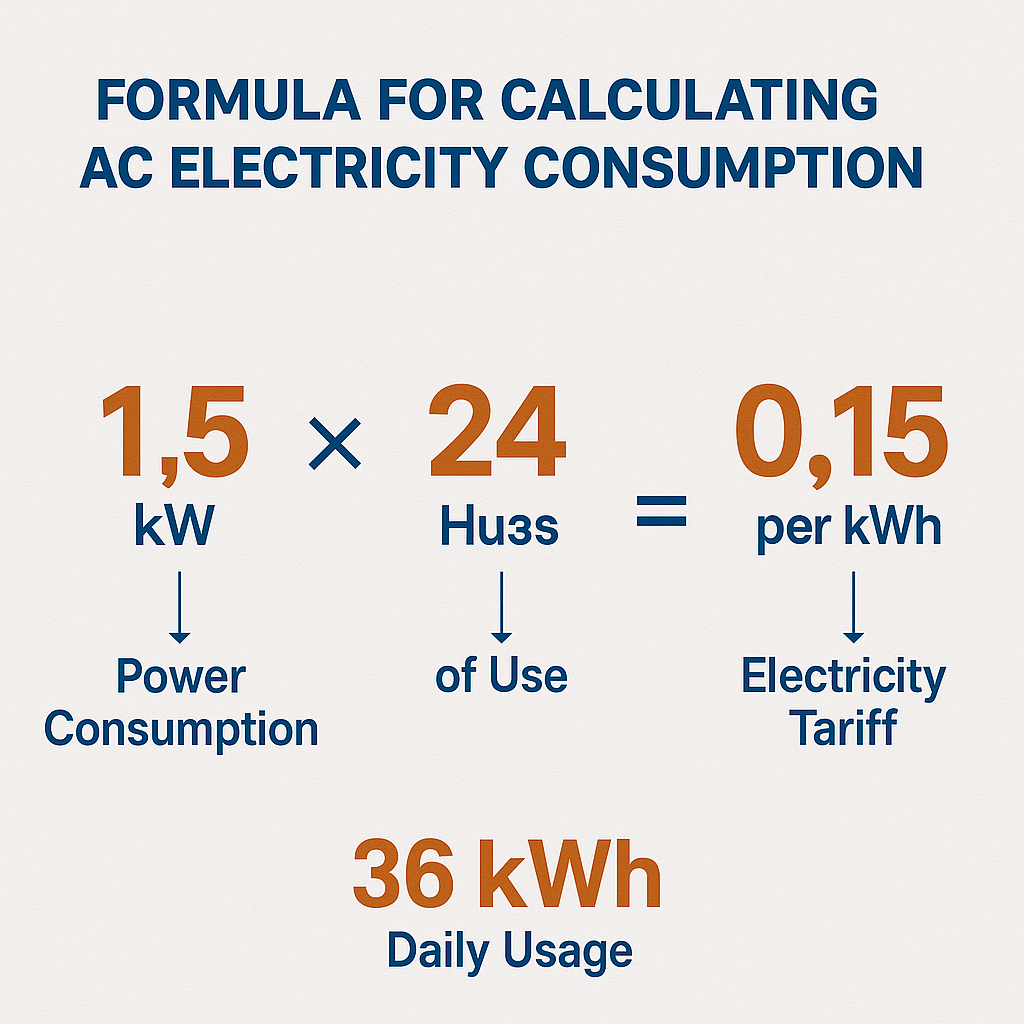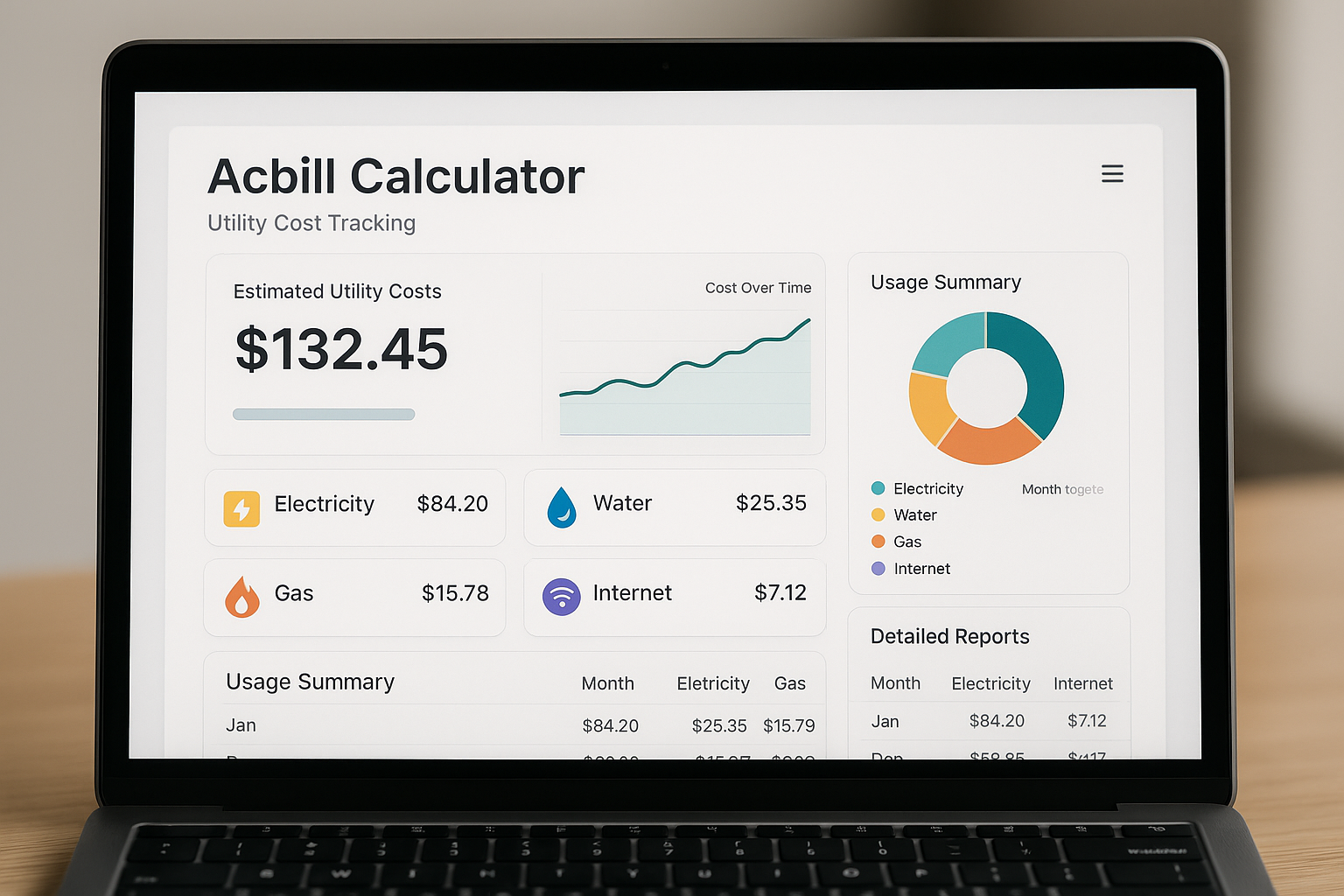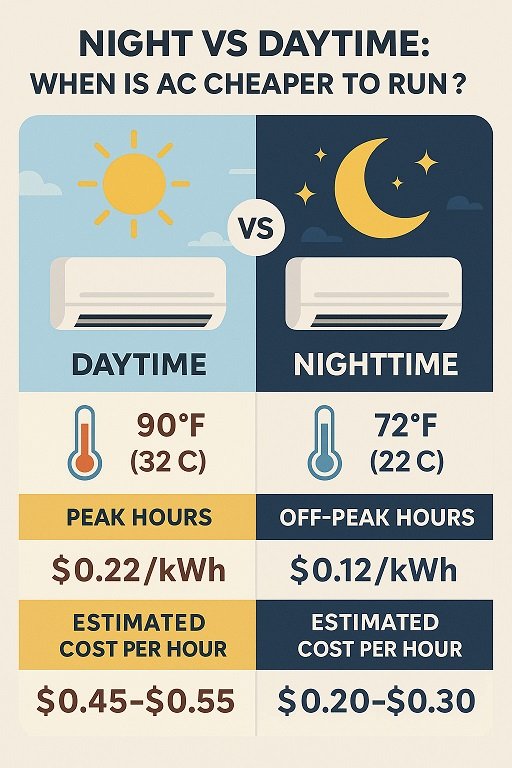
Night vs Daytime: When Is AC Cheaper to Run
Night vs Daytime: When Is AC Cheaper to Run?
Understanding AC Running Costs
It's not just about pressing the power button and turning on the air conditioner (AC), but also about the use of energy, time, and efficiency. The question that homeowners often ask is: Should I keep the AC on at night or during the day? To answer this, we need to consider how AC units use electricity and how electricity is priced.
How Air Conditioners Consume Power
An AC system removes heat from the air in a room by recycling refrigerant. The compressor, fan motor, and condenser coil all work together and require a significant amount of electricity. The harder the AC works, the less electricity it uses - especially on hot afternoons when the weather outside is at its best.
Factors Affecting Electricity Bills
- Electricity tariff structure (peak vs off-peak rates)
- Outdoor temperature (has an impact on compressor workload)
- Indoor thermostat setting (every degree lower increases energy use by ~6–8%)
- Humidity (excessive humidity will increase cooling cycles)
AC Running Cost at Night vs Daytime
The cost of running an AC depends on when and how long you use it.
Impact of Tariff Timings (Peak vs Off-Peak Hours)
Many utility providers use Time-of-Use (TOU) pricing:
- Daytime (Peak Hours): Higher rates, usually mid-afternoon to evening.
- Nighttime (Off-Peak Hours): Lower rates, often late evening to early morning.
➡️ Running your AC at night during off-peak hours can be 20–40% cheaper, depending on your provider.
Role of Ambient Temperature Curves
- Daytime: The peak cooling load of the AC units occurs when the outdoor temperature peaks between 2 PM -6 PM.
- Night: The nocturnal outdoor environment makes the compressor work less, which leads to more efficiency.
Humidity and Its Effect on Energy Consumption
Even the night air tends to be humid. Although this can reduce compressor strain, because of cooler temperatures, it can still require additional energy to dehumidify.
Smart Scheduling for Optimal AC Efficiency
Smart home gives you the chance to optimize the use of AC.
With Programmable Thermostats.
- When the rates are lower in the late evening pre-cool your home.
- Adjust the higher temperatures a few notches when the bill peaks to avoid spikes.
Leveraging Smart Meters and Time-of-Use Plans
Smart meters monitor real time usage, and allow you to control the use of AC when the cost per kilowatt-hour is high.
Best Practices for Reducing AC Bills
- Ceiling fans can be used to help with the air.
- Close blinds during hot afternoons.
- Planner cooling cycles.
Comparing Night vs Daytime AC Usage
Case Study: Hot Climate vs Mild Climate
- Phoenix, AZ (Hot Climate): AC bills at night cost 30 per cent less because of lower ambient temperatures + off peak rates.
- San Diego, CA (Mild Climate): Minimal cost difference between day and night.
Cost Comparison Table
Time of Use | Avg. Outdoor Temp | Tariff Rate | Estimated Cost per Hour
Daytime | 90°F (32°C) | $0.22/kWh | $0.45–$0.55
Nighttime | 72°F (22°C) | $0.12/kWh | $0.20–$0.30
Pros and Cons of Running AC at Night
Benefits of Cooling Overnight
- Cheaper due to off-peak electricity rates.
- Lower outdoor temps = less compressor strain.
- More comfortable sleep environment.
Downsides and Potential Health Risks
- Excessively cold night could interfere with sleep patterns.
- The increased nighttime humidity may promote the development of molds.
Expert Tips to Lower AC Costs
Ideal Thermostat Settings
- 78°F (25°C) during the day.
- Sleeping comfortably at 72 74 o C in the night.
Maintenance for Energy Efficiency
- Replace filters every 30–60 days.
- Clean condenser coils annually.
- Seal duct to avoid wastage of energy.
Alternative Cooling Methods
- Use natural ventilation when outdoor temps drop.
- Install attic fans to heat out of attic.
- Note evaporative coolers in hot dry climates.
FAQs About AC Running Costs
Q1. Will it always cost less to operate AC at night?
Not always. When your utility company does not use TOU, the difference in costs can be insignificant.
Q2. Why can my AC bill still be high at night?
Costs can still be increased by the high humidity and low thermostat setting.
Q3. Is pre-cooling the house less expensive?
Yes, but when it is done when electricity is not in high demand.
Q4. Would it be cost effective to switch off my AC at night in order to achieve cost savings?
Not necessarily. Switching your AC on and off can be more energy-consuming than keeping the temperature the same.
Q5. Do ceiling fans save any AC?
Well, they do provide that wind-chill effect, which enables you to increase thermostat settings 2-3 o F.
Q6. Is there a cheaper way to run inverter ACs at night?
Yes, inverter units control the speed of the compressor, and are therefore more efficient on cooler nights.
Conclusion: When Is AC Cheaper to Run?
At night, AC operating rates are typically lower due to lower outside temperatures and lower electricity rates. However, this depends on your weather, utility company, and thermostat. Homeowners can save a lot of money on AC, day or night, by implementing a combination of intelligent scheduling, smart thermostat use, and regular maintenance.
